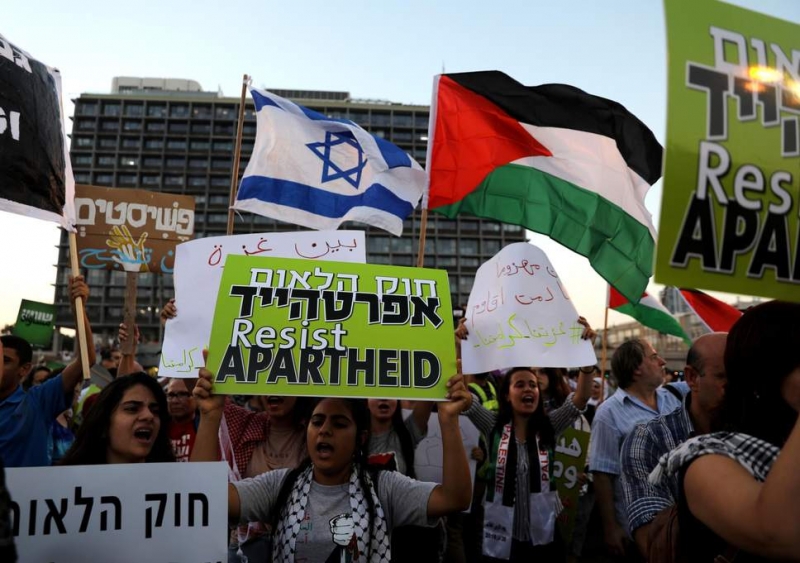Poll boycott call
Some of Israel’s young Arab citizens are calling for a boycott of Tuesday’s parliamentary election, dismayed by a recent law which they say reduces them to second-class citizens. The pro-boycott activists, many of whom identify as Palestinian, have tried in the past to persuade others among Israel’s Arab minority not to vote. But this time, they say, they are tapping into anger over the 2018 law that declares only Jews have a right to self-determination in the “nation-state” of the Jewish people.
Leaders of Israel’s main Arab parties are pushing for their voters to turn out, fearing a boycott would weaken the 21-percent Arab minority’s representation in parliament, and boost Prime Minister Benjamin Netanyahu’s election chances. Ignoring the party leaders, dozens of activists from the “Popular Campaign to Boycott the Zionist Knesset Elections” have been handing out leaflets in the northern Israeli port city of Haifa, which has a mixed Jewish and Arab population, and in smaller Arab towns and villages.
“This is an attempt to boycott the body that actively tries to erase our Palestinian identity,” said Joul Elias, a student from Haifa who turned up to distribute flyers in Wadi Nisnas, a majority Arab neighbourhood in the city. Israel’s Arab minority comprises mainly descendants of the Palestinians who remained in their communities or were internally displaced after the 1948 war that surrounded Israel’s creation. According to figures released by Israel’s Central Bureau of Statistics, there were 1.9 million Arabs in Israel’s roughly nine million populations at the start of 2019.
Most were Muslims, Christians or Druze. Jews made up 74.3 per cent of the population. Wake-up call Despite holding Israeli citizenship, many Arabs say their communities, from the fertile Galilee in the north to the Negev desert in the south, face discrimination in areas such as health, education and housing. Netanyahu’s ruling Likud party counters that its 15 billion shekel ($4.19 billion) investment plan for the Arab sector “is the largest such commitment in Israel’s history,” according to Eli Hazan, Likud’s foreign affairs director. But Netanyahu rekindled Arab resentment in March when he wrote on Instagram that “Israel is not a state of all its citizens.”
It was a reference, he said, to the new law, and the country being the homeland of the Jewish people. Many in the Arab community saw the Instagram post as an echo of divisive comments he made in the 2015 election. Hours before the polls closed on election day that year, Netanyahu said that Arabs were flocking “in droves” to cast ballots. This was an attempt to prod any complacent right-wing supporters to get out and vote for him.
Related Posts

